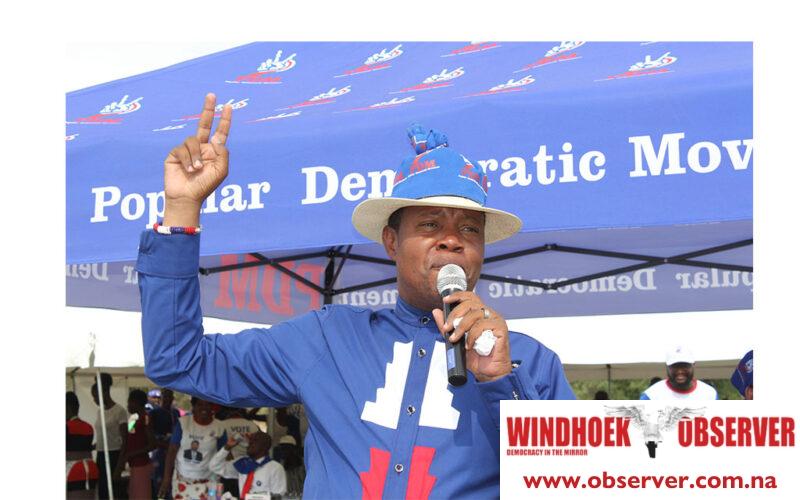Stefanus Nashama
The Popular Democratic Movement (PDM) released its election manifesto over the weekend, in which it promises to create employment opportunities, build houses and expand agriculture if elected into power.
According to the manifesto, the PDM plans to reduce the unemployment rate by 2029.
“We will reduce the unemployment rate to 11% by 2029 through our ‘one constituency, one factory’ policy intervention,” reads the manifesto.
To ensure fiscal sustainability, the party also seeks to fix the economy and slash government debt by at least 50% of gross domestic product (GDP) by 2029.
The manifesto further indicates that the party plans to reduce the ministry to 15.
“PDM will trim the executive to only 15 ministers and 4 deputy ministers to drastically reduce government expenditure and avail more resources to our people,” said the manifesto.
On the construction of houses, the PDM seeks to reduce the urban housing backlog to only 30% by 2029 through one Namibian–one plot policy intervention.
The party also plans to increase the budgetary allocation for agriculture to 10% with the Malabo Protocol to achieve agricultural modernisation and mechanisation.
The manifesto also touched on dealing with corruption and crime.
The PDM said that they will accomplish this by tightening legislation and enhancing policing services.
On international relations, the manifesto revealed that the PDM will renegotiate all government agreements pertaining to the country’s natural resources in good faith to ensure that the government is the majority shareholder in all deals pertaining to mineral resources for the benefit of current and future Namibian generations.
“We will enact legislation to compel that up to 50% of all natural resources undergo local value addition,” it stated.
The PDM also sought to improve the basic education curriculum across the board and address infrastructural deficits in schools, including challenges faced by teachers.
The party will also focus on renewing genocide negotiations with the German government with the view to achieving genuine atonement through reparations and forgiveness for the atrocities of the 1904-1908 Genocide in Namibia.
Political analyst, Sakaria Johannes said the PDM manifesto is good for what people expect from the government.
He, however, questioned the readiness of the official opposition to deal with such promises.
“Political parties identify the loopholes, but once elected into power, they might struggle to complete the task. But if the party meant what it meant, that is a good manifesto,” he said.
Johannes also explained that the executive director runs the ministry, but the government spends more money on ministers.
“Some ministries do not require deputies since much of the work is done by civil servant officials,” he said.
He encouraged political parties to change the laws that no longer protect the needs and interests of the people.




